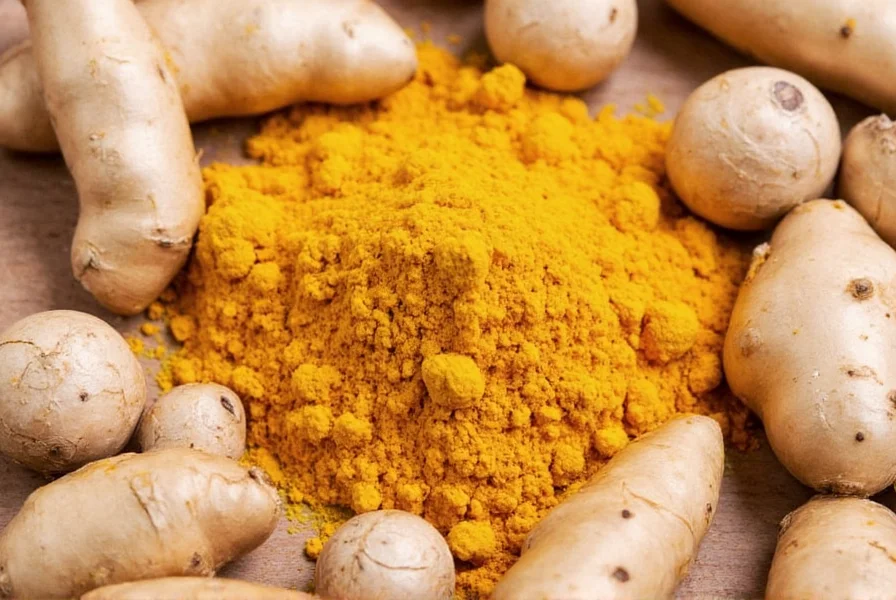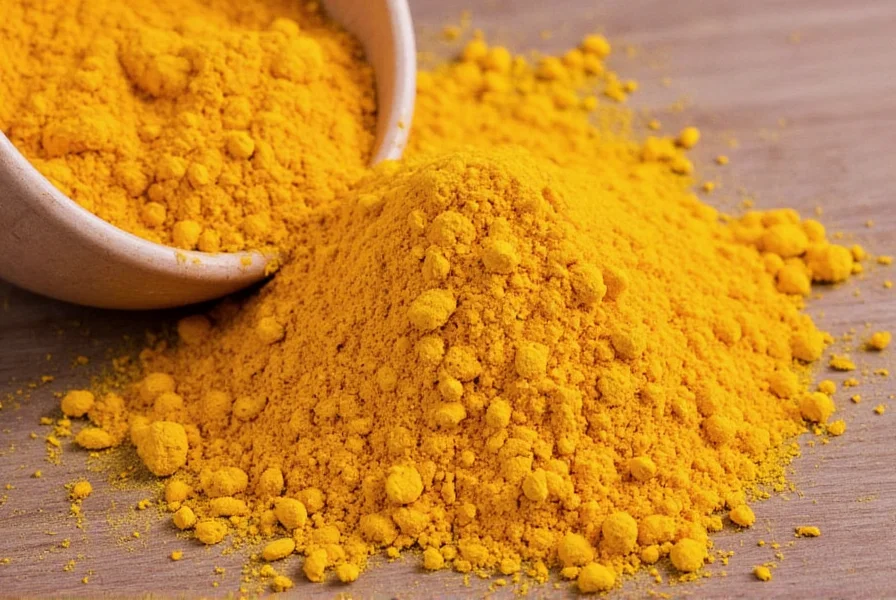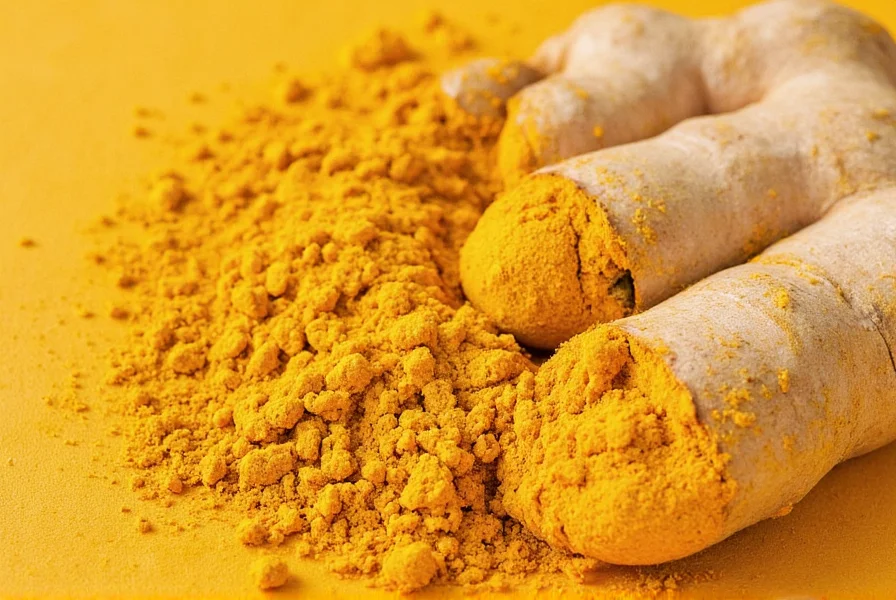When combined, turmeric and ginger create a powerful natural remedy with benefits that extend beyond what either spice offers alone. The active compounds—curcumin in turmeric and gingerol in ginger—work synergistically to enhance absorption and effectiveness. Scientific studies demonstrate that this pairing significantly increases the bioavailability of curcumin, which is otherwise poorly absorbed by the body. This natural combination has been used for centuries in traditional medicine systems like Ayurveda and Traditional Chinese Medicine for addressing inflammation, digestive issues, and immune support.
The Science Behind Turmeric and Ginger
Turmeric contains curcumin, a polyphenol with potent anti-inflammatory and antioxidant properties. However, curcumin has low bioavailability on its own. Ginger contains gingerol, which not only has its own therapeutic properties but also enhances curcumin absorption by up to 2000% according to research published in the Journal of Medicinal Food. This remarkable synergy makes the turmeric with ginger combination particularly effective for health applications.

Key Health Benefits of the Combination
The turmeric ginger combination delivers several evidence-based health advantages that make it valuable for daily wellness routines.
Enhanced Anti-Inflammatory Effects
Chronic inflammation underlies many modern health conditions. The turmeric and ginger anti-inflammatory benefits work through multiple pathways—curcumin inhibits NF-kB (a molecule that triggers inflammation), while gingerol suppresses inflammatory cytokines. A 2016 study in Evidence-Based Complementary and Alternative Medicine found that participants using both spices experienced significantly greater reduction in inflammatory markers compared to those using either spice alone.
Superior Digestive Support
For those seeking how to use turmeric with ginger for digestion, this combination stimulates bile production, reduces nausea, and eases bloating. Ginger promotes gastric motility while turmeric's anti-inflammatory properties help heal the gut lining. This makes the pairing particularly beneficial for individuals with irritable bowel syndrome (IBS) or occasional digestive discomfort.
| Benefit | Mechanism | Research Support |
|---|---|---|
| Joint health | Reduces inflammatory enzymes | Multiple clinical trials |
| Immune function | Enhances white blood cell activity | 2020 immunology study |
| Antioxidant protection | Neutralizes free radicals | In vitro and animal studies |
Immune System Enhancement
The turmeric ginger tea recipe for immunity has gained popularity for good reason. Both spices modulate immune response—turmeric regulates immune cell activity while ginger stimulates circulation and white blood cell production. During cold and flu season, this combination provides natural immune support without the side effects of pharmaceutical interventions.
Practical Applications and Usage
To maximize the scientific evidence turmeric ginger combination benefits, proper preparation matters. Here's how to incorporate them effectively:
Culinary Integration
Add both spices to:
- Golden milk (turmeric-ginger latte)
- Stir-fries and curries
- Smoothies (with black pepper to enhance absorption)
- Vegetable roasting blends
Supplement Considerations
When choosing supplements, look for formulations containing:
- Piperine (black pepper extract) to boost curcumin absorption
- Standardized extracts (95% curcuminoids, 5% gingerols)
- Liposomal or nanoparticle delivery systems for better bioavailability
Optimal Dosage Guidelines
Research suggests these effective daily amounts:
- Turmeric: 500-2,000 mg of curcumin
- Ginger: 1,000-2,000 mg of ginger extract
- For fresh roots: 1-3 grams of each daily

Safety and Considerations
While generally safe, certain precautions apply:
- May interact with blood thinners (consult your physician)
- High doses might cause digestive upset in sensitive individuals
- Not recommended for those with gallstones without medical supervision
- Pregnant women should limit intake to culinary amounts
Scientific Evidence Summary
The curcumin and gingerol synergistic effects have been documented in multiple studies. A 2021 review in Nutrients analyzed 15 clinical trials and concluded that the combination demonstrated superior anti-inflammatory effects compared to monotherapy. Another study in Phytotherapy Research found the pairing significantly reduced osteoarthritis pain scores after 12 weeks of consistent use.
While more large-scale human trials are needed, the existing evidence combined with centuries of traditional use supports incorporating turmeric with ginger as part of a comprehensive wellness approach. The key is consistent, proper usage that maximizes bioavailability while minimizing potential side effects.
Frequently Asked Questions
What's the best way to consume turmeric with ginger for maximum benefits?
For optimal absorption, combine turmeric and ginger with black pepper (which contains piperine) and a healthy fat like coconut oil. A simple golden milk recipe with these ingredients consumed daily provides maximum benefits. The combination enhances curcumin bioavailability by up to 2000% compared to turmeric alone.
How long does it take to see results from turmeric and ginger combination?
Most people notice digestive benefits within a few days of regular consumption. For inflammation reduction and joint health improvements, consistent use for 4-8 weeks is typically needed. Research shows measurable changes in inflammatory markers after 6 weeks of daily supplementation with standardized extracts.
Can I take turmeric with ginger if I'm on blood pressure medication?
Turmeric and ginger may enhance the effects of blood pressure medications, potentially causing levels to drop too low. If you're taking antihypertensive drugs, consult your physician before adding this combination to your routine. Your doctor may need to adjust your medication dosage accordingly.
Does cooking turmeric with ginger reduce their effectiveness?
Moderate cooking actually enhances the bioavailability of both compounds. Heating turmeric increases curcumin solubility, while ginger's active compounds remain stable at cooking temperatures. However, avoid prolonged high-heat exposure which can degrade some beneficial compounds. Adding them toward the end of cooking preserves maximum potency.











 浙公网安备
33010002000092号
浙公网安备
33010002000092号 浙B2-20120091-4
浙B2-20120091-4